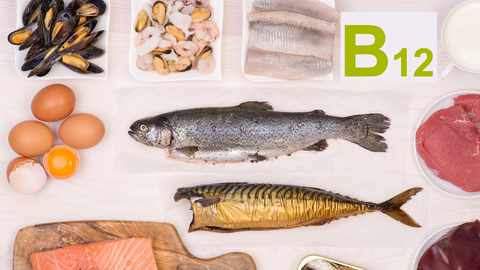Education

Mental energy isn’t just willpower; it’s biology. Your brain relies on complex systems of metabolism, neurotransmission, and stress adaptation to stay focused under pressure. Learn how nutrients like B vitamins, Acetyl-L-Carnitine, Ginkgo, and Rhodiola work together to support clarity, endurance, and calm focus, without overstimulation or crash.

Your brain and immune system are in constant conversation, influencing everything from focus to energy to overall resilience. When daily stress, poor sleep, or environmental toxins create oxidative stress, both systems feel the strain. Antioxidants like Vitamin C, D3, Zinc, and plant compounds such as Quercetin and Resveratrol help keep that communication network strong. Discover how daily antioxidant support can protect your brain and body in a world that rarely slows down.

We live in a culture fueled by caffeine and deadlines — where quick energy fixes come at the cost of real focus and resilience. While stimulants like coffee and energy drinks deliver short bursts of alertness, they also drain the body’s stress systems over time, leaving the brain running on fumes. Adaptogens offer a smarter solution.

Stress and brain fog often strike at the same time — draining your focus just when you need it most. The truth is, stress and cognition are deeply connected, and ignoring one can weaken the other. Procera Advanced Brain® was created with this in mind, combining clinically studied adaptogens like Ashwagandha and Rhodiola with memory-supporting botanicals, phosphatidylserine, and essential nutrients. The result is a complete formula designed to help you stay calm under pressure, think clearly, and support your brain health long term.

Choosing the right choline supplement can feel confusing. Phosphatidylcholine, Alpha GPC, and Citicoline each offer unique benefits for the brain, but no single form can do it all. That is why Procera Vital Choline® combines all three, and also includes Pantothenic Acid (as D-calcium pantothenate) to support energy metabolism, along with Taurine to help boost brain energy. Together, these ingredients create a complete, research-backed formula designed to provide well-rounded support you will not find in typical single-ingredient supplements.

More than 90% of Americans are missing a nutrient essential for brain, liver, and nervous system health, and most don’t even know it. Choline plays a vital role in memory, focus, energy, and long-term resilience, yet it remains one of the most overlooked gaps in modern nutrition. This article explores why deficiency is so widespread, who is most at risk, and how you can protect your health with smarter choices and targeted support.

Artificial intelligence is moving into one of the most personal spaces we have: mental health. From therapy chatbots to mood-tracking apps, AI promises accessibility, convenience, and around-the-clock support. But can algorithms really understand the complexity of human emotion, or are we outsourcing our inner lives to tools not built for depth?
This article explores the promise and the caution behind AI as a “digital therapist,” the neuroscience and ethics involved, and how to engage with these technologies mindfully, while remembering that real resilience still comes from human connection, restorative habits, and strong brain health foundations.

We live in an age where artificial intelligence can write essays, solve equations, and even pass medical exams. While these advancements are impressive, they raise an important question: What happens to the human brain when we outsource learning to machines? Are we evolving into more efficient thinkers, or slowly losing cognitive strength by avoiding mental effort?
Let’s explore the benefits and potential drawbacks of AI-assisted learning, especially as it relates to memory, attention, neuroplasticity, and long-term brain health, compared to the more analog learning styles of previous generations.

For centuries, Ginkgo biloba and Panax ginseng have been valued for promoting clarity, alertness, and resilience. Today, modern research is uncovering how these botanicals may influence circulation, mood, and cognitive performance. Procera has taken this time-tested pairing a step further by developing Gincera®—a patented, clinically studied blend of standardized ginkgo and ginseng extracts that has been tested using one of the most widely respected tools in neuroscience research: the Cognitive Drug Research (CDR) System.
In this article, we’ll explore how ginkgo and ginseng may complement each other, and what the research shows about their potential to support memory, focus, and resilience.

When it comes to brain health, sometimes the most powerful solutions are the simplest. B-vitamins don’t just “boost energy”—they help fuel neurotransmitter production, support circulation, and maintain the metabolic processes that keep your brain clear and resilient. In this article, we explore how B1, B2, B3, B6, Folate, and B12 work together as a “blueprint” for cognitive function, and how Procera® Advanced Brain builds on this foundation with additional clinically studied ingredients.

Although not a household word in the United States, Vinpocetine has long been used in Europe and other countries for its blood and brain health benefits. Technically, Vinpocetine is an herbal supplement derived from botanical extracts, most notably the Perriwinkle plant. This beautiful flowering shrub is a favorite among gardeners, but it can also have powerful vasodilatory and brain-boosting effects when taken as an supplement. Let’s look at a few of the specific ways that Vinpocetine benefits you and specifically your brain health.

These 5 Foods Will Get You Up To Speed.
Do you feel worn out? Are you forgetting stuff that you usually remember? Do you get worked up more easily than usual or find yourself getting sad over little things? If so, it’s possible that you’re not getting enough Vitamin B-12. You might have noticed that B-12 shots are all the rage right now (They’re even giving them in the mall!). There’s a good reason for that. B Vitamins are often called the ‘energy vitamins’ because they work like keys to unlock your body’s energy reserve. Let’s look at what Vitamin B-12 specifically can do for you and why you need it.



